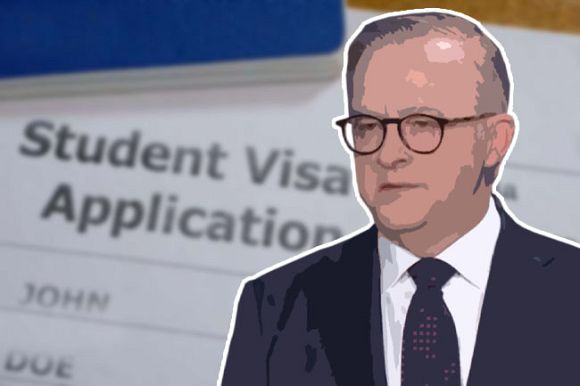A proposed increase in student visa fees could lead to complications within our international education system and should be avoided by the Government, writes Dr Abul Rizvi.
THE GRATTAN INSTITUTE has proposed a further increase in student visa application fees to pay for an increase in Commonwealth Rent Assistance. While this would be electorally popular, it would be poor public policy.
Grattan proposes increasing the student visa application fee from an already high $750 to $2,500. Note that the fee is non-refundable irrespective of whether the applicant is successful in getting a visa or not.
By comparison, student visa application fees for the U.S. are US$185 (AU$284.58), for Canada, C$235 (AU$266.17) and for the UK, £490 (AU$956.22).
Extracting more money from foreigners and gifting it to poor Aussies is always going to be electorally popular. It would wedge Opposition Leader Peter Dutton who is naturally inclined to screw foreigners, although he may wish to spend the money in some other way. The attraction of this to the Albanese Government may well be overwhelming.
But the explanation for why this would be such poor policy is actually in the Grattan report itself, which states:
Getting the best international students to stay here permanently is even more valuable. International graduates account for one-third of our permanent skilled migrant intake.
Those students who are granted permanent skilled visas each year offer a $12 billion fiscal dividend over their lifetimes in Australia. That’s more than double the profits universities reap each year from teaching international students.
This is where our focus should be. A large increase in the student visa application fee would be contrary to delivering this obvious benefit.
First, it would mean that the best students, who generally have greater choices in where they decide to study, will more likely choose other nations over Australia. Why risk a non-refundable application fee of $2,500 when the outcome is uncertain?
Australia would tend to be left with students who have fewer choices in study destination and who are more likely to struggle to complete high-quality courses, get skilled jobs in Australia and thereby secure permanent residence. They are the very students who fall into the immigration limbo the Albanese Government says we must avoid.
Second, to secure the additional revenue, the Government may decide it doesn’t need to introduce measures to target the brightest and best students.
Our current arrangements try to target the best students in a ham-fisted way by giving priority to students applying to study with Group of Eight universities, which the Government assumes will naturally pick only the best students. This is an unsatisfactory assumption and relies on the Group of Eight universities maintaining standards over the desire to increase profits.
The student visa must itself require that education providers only recruit the best students and don’t undermine standards by allowing overseas students into courses with marks well below those required of domestic students.
Grattan says that the number of student visa holders in Australia has surged to more than 650,000, ‘well above pre-COVID levels’ and that is driving up rents. Grattan is gilding the lily here.
In September 2019, there were 633,816 student visa holders in Australia. 650,000 student visa holders is hardly ‘well above pre-COVID levels’. Moreover, most students live near universities in the CBD of major cities. They would have little impact on rents in suburban Australia.
The level of revenue that this measure may raise could also have been overstated by Grattan because the Government is already acting to reduce the level of student visa applications through a major increase in refusal rates. While that is a poor and unsustainable policy measure, it will reduce the application rate and thus the revenue collected through a higher student visa application fee.
The Albanese Government should resist the temptation of increasing the student visa application fee, as suggested by Grattan. That would be shooting ourselves in the foot.
It should instead re-think the overseas student program to make it genuinely focused on attracting only the brightest and best students. It should take note of the recent report of the University Accord to encourage overseas students to study in areas of long-term skill shortage.
Dr Abul Rizvi is an Independent Australia columnist and a former Deputy Secretary of the Department of Immigration. You can follow Abul on Twitter @RizviAbul.
Related Articles
- Albanese Government still pushing to mend Coalition's student visa mess
- Management of student visas has Government in a pickle
- Albanese Government taking steps to avoid student visa crash
- Overseas student visas entering a new phase
 This work is licensed under a Creative Commons Attribution-NonCommercial-NoDerivs 3.0 Australia License
This work is licensed under a Creative Commons Attribution-NonCommercial-NoDerivs 3.0 Australia License
Support independent journalism Subscribe to IA.














